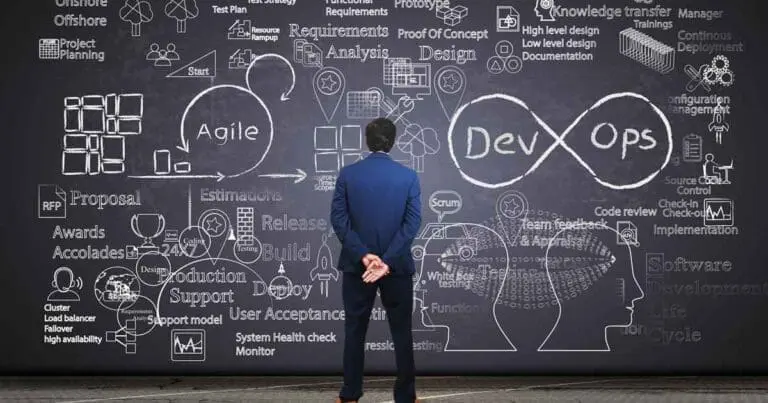Beyond AI Buzzwords: What Real AI Transformation Actually Takes

True AI transformation isn’t found in plug-and-play software or news-grabbing POCs—it’s rooted in solving entrenched, systemic problems.
The companies that are unlocking real impact aren’t chasing flashy use cases.
Instead, they’re embedding AI into the fabric of their organizational workflows.
How to Simplify AI Transformation
Organizations can simplify AI transformation if they start with process mapping, stop wasting budget on redundant AI assessments, and skip the flashy projects and focus on embedded AI value.
Start With Process Mapping
The best AI transformation starts with people—not code.
Talk to your team and map out how work really gets done. That’s how you’ll find the pain points that slow things down and waste time.
Then, build a team that mixes operations, tech, and HR. That way, your AI projects will solve real problems—not just chase shiny ideas.
Stop Wasting Budget on Redundant AI Assessments
Most AI transformation maturity assessments validate what leadership and teams already know—where the bottlenecks are and what’s underperforming. Operational pain points aren’t hidden; they’re often part of the daily grind.
What’s missing isn’t diagnosis, but execution—turning known inefficiencies into action plans with clear accountability.
To move fast, skip the consulting decks and invest in embedding objectives into performance reviews for measurable change.
Skip the Flashy Projects—Focus on Embedded AI Value
Unless your company builds foundational models, steer clear of AI moonshots. The companies realizing enterprise-wide impact are embedding AI into day-to-day processes, not building showcase labs.
Success comes from hiring talent focused on business strategy and ROI—people who measure success by step-change performance, not academic papers.
Every high-performing transformation shares one trait: it treats AI as operational infrastructure, not innovation theater.
Why AI Wins Are About Operations, Not Just Algorithms
AI wins are about more than algorithms and focus on operations because AI fails without process and team restructuring, end-to-end accountability is key for AI teams, and the biggest AI wins are hiding within your business.
AI Fails Without Process and Team Restructuring
It’s tempting to over-index on models and data pipelines, but that misses the point. Sustainable business transformation depends on redesigning workflows, roles, and accountabilities.
The best AI projects are often paired with restructuring efforts that rethink how teams function together. Without this, even the most promising initiatives collapse under legacy friction.
End-to-End Accountability Is the Missing Link in AI Teams
AI transformation fails in siloed environments where no one owns the outcome. The most successful companies build roles with visibility across the customer lifecycle and operational chain—driving real impact by aligning execution with outcomes.
Many tap specialized partners like Mondo to staff these cross-functional roles, accelerating momentum by filling leadership and specialist gaps fast. That’s how smart orgs keep an ongoing transformation motion alive.
The Biggest AI Wins Are Hiding Inside Your Business
AI’s biggest ROI often lives far from customer-facing glamor. Teams making real progress are tackling internal inefficiencies—think procurement, legal compliance, and claims processing.
These functions may not be flashy, but they’re full of untapped opportunities for AI to transform speed, accuracy, and cost structure.
These use cases also generate rich customer insights, strengthening customer relationships indirectly but measurably.
The Key Roles You Need to Operationalize AI Successfully
They key roles you need to operationalize AI successfully are Data Scientists, cross-functional thinkers, workflow-obsessed implementers, and quiet executors who lead change.
Data Scientists
These are your algorithm builders—but their value multiplies when tied to operational outcomes.
The best data scientists are deeply integrated into customer mission teams, translating messy business problems into clean, solvable data challenges.
Cross-Functional Thinkers
Bridge-builders who connect ops, tech, and people teams are essential to AI success.
They see across the lines of industry transformation, helping to embed AI where it matters most in the customer experience and operational backbone.
Workflow-Obsessed Implementers
These specialists excel at turning vision into execution.
Their focus on organizational strategies and process optimization ensures AI tools aren’t just adopted—they’re operationalized for sustained efficiency.
Quiet Executors Who Lead Change
These unsung heroes drive the reinvention over time.
They aren’t loud, but their impact is. They’re skilled at aligning customer advocacy, stakeholder buy-in, and execution into scalable engagement strategies.
Real AI Transformation Starts With the Right People
No matter how advanced your tools or how detailed your data strategy, people drive success.
Winning teams prioritize outcomes, understand processes, and are structured for agility—not perfection.
With the right mix of talent, you can align your business strategy with the potential of AI—delivering transformation that sticks.
Looking to hire top-tier Tech, Digital Marketing, or Creative Talent? We can help.
Every year, Mondo helps to fill thousands of open positions nationwide.
More Reading…
- Fractional Transformation Leadership: The Secret Weapon for AI-Ready Teams
- How to Staff for AI When Your Exec Team Can’t Agree on a Strategy
- Building an Internal-External Workforce for Sustainable AI Initiatives
- Staffing After the Consulting Spend: Why Companies Are Reaching for Mondo
- What Enterprise Consulting Spend Reveals About the Future of Hiring
- Fractional AI Leadership: A Smart Alternative to $1M+ Exec Hires
- Why Mid-Market Companies Are Positioned to Win the Race to AI Systemization
- What to Do When Your Leadership Team Isn’t Aligned on the Future
- Why Internal Ownership of AI Matters — And Who You’ll Need to Make It Happen
- Dependency to Capability: Why the Future of Digital Transformation Is Built, Not Bought
- Revenue Per Employee in the Age of AI: What It Means for Your Talent Strategy



